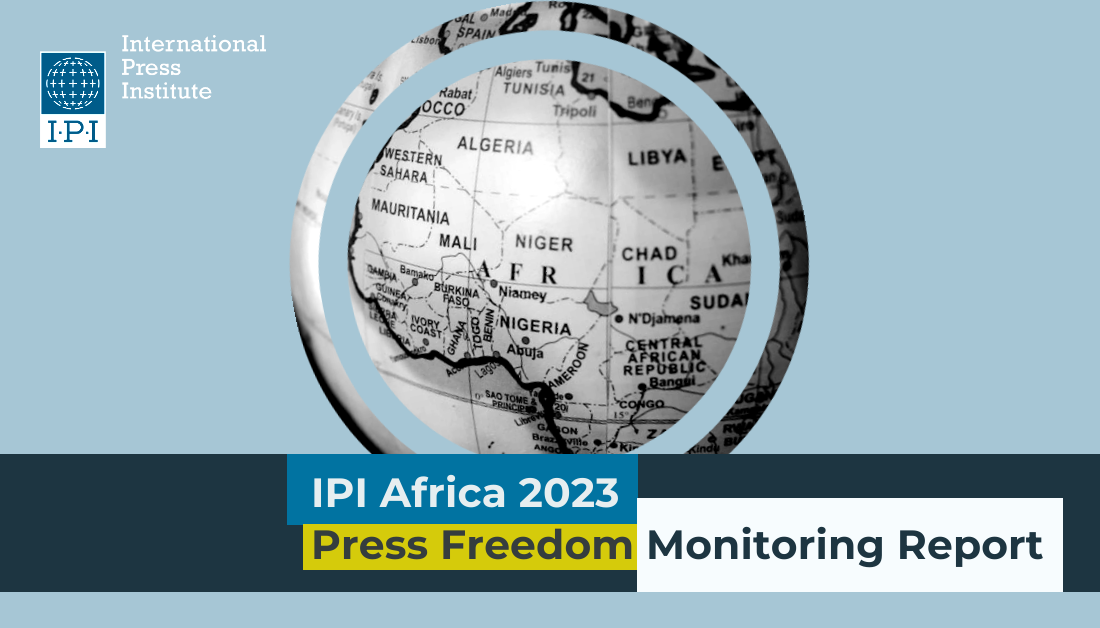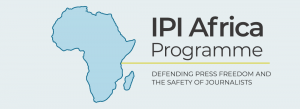At least 12 journalists were killed in sub-Saharan Africa in 2023, according to monitoring by the International Press Institute (IPI)’s Africa programs. These incidents are among the nearly 600 cases of attacks on journalists and other threats to press freedom that IPI documented in the region last year.
Altogether, IPI documented 591 cases affecting journalists across 40 countries across sub-Saharan Africa. Nearly one-sixth of the cases (85) were attacks on female journalists. The highest number of incidents occurred in Nigeria, with most of the cases taking place following the country’s February 2023 elections. The next-highest number of cases were recorded in DRC and Somalia.
As the world recently commemorated Press Freedom Day (WPFD), it is critical to reflect on the state of media freedom in the region as reflected through this monitoring report and ensure that the perpetrators, who are mostly state officials, are also prosecuted.
Killings of journalists continue
IPI documented the killings of 12 journalists in seven countries in the region in 2023. The journalists in these cases are either believed to have been targeted for their work, or a motive linked to their journalism cannot be ruled out. In many cases, the lack of a full and transparent investigation on the part of the authorities makes it difficult to establish certainty regarding the motive.
In Cameroon, radio journalist Martinez Zogo, who was known for his criticism of poor governance and corruption, was assassinated in January 2023. That same month, in Rwanda, John William Ntawli, who had exposed human rights abuses in the country in the past, was killed in what authorities have claimed was a traffic accident. A court later sentenced the driver involved in the collision. However, the circumstances surrounding Ntawli’s death remain unclear and doubt remains.
Two additional journalists were killed in Cameroon last year. Jean Jacques Ola Bebe, who was considered close to Martinez Zogo, and Anye Nde Nsoh, who was killed by separatist groups in the English-speaking region of Ambazonia. In contrast to the case of Martinez Zogo, where an investigation and prosecution are underway, the authorities have failed to investigate the killings of Bebe and Nsoh.
Meanwhile, In Mali, radio journalist Abdoul Aziw Djibrila was killed on November 14 by an insurgent group after participating in a media training. In Lesotho, Ralikonelo “Leqhashasha” Joki, known as a fearless radio journalist who exposed political corruption, was killed on May 14. While authorities arrested several initial suspects, the case remains open.
Failure by the authorities to thoroughly investigate the killings of journalists – as has too often been the case in Africa – and hold the perpetrators to account creates an environment of impunity and perpetuates a cycle of violence against the press.
Physical, verbal, and online attacks on the press
Journalists faced other forms of threats to their work last year. Physical, verbal, and online attacks against journalists were the most common form of threats to press freedom in 2023, affecting 220 male and 48 female journalists, respectively. IPI’s monitoring also documented 158 cases of arrest and detention and 112 cases of censorship in sub-Saharan Africa in 2023.
State actors account for most threats
State actors accounted for the vast majority – 87.3 percent – of the recorded incidents affecting press freedom. Police and state security officers were leading actors responsible.
See the full factsheet here and below
Positive developments offer hope
Despite the scope of the threat to press freedom across the region, IPI’s Africa program also documented several positive developments. These included progressive judgments by local and regional courts, legal reform, and the release of detained journalists.
In Malawi, for instance, President Lazarus Rushakwera officially signed into law an amended Penal Code that decriminalized sedition and other related offenses. South Africa also repealed criminal defamation. Additionally, after over 20 years of advocacy by civil society, the Zambian government enacted an access to information law in December 2023.
Meanwhile, the ECOWAS Court of Justice declared provisions of the Nigeria broadcasting regulations as incompatible with the freedom of expression guarantees in the African Charter on Human and Peoples’ Rights (ACHPR). In South Africa, courts on two occasions stopped attempts by powerful individuals and businesses to gag critical media. In July, the Gauteng High Court turned back what it called “an abusive attempt by two politically connected businessmen to gag a targeted newsroom”. Separately, the Johannesburg High Court overturned a gag order against investigative outlet Amabhungane in relation to its reporting on the Moti Group company.
In several cases, authorities released detained journalists following local and international advocacy efforts. For instance, in Niger, authorities freed journalist Samira Sabou after eight days of detention following her arrest on allegations of violating the cybercrime law. In Somalia, journalist Mohamed Ibrahim Bulbul was released after nearly two months of detention on frivolous charges over a story that exposed police corruption. The court declared his 56 days detention as unlawful.

